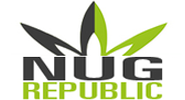A Complete Guide To CBD
What are Cannabinoids?
The cannabis plant contains a classification of naturally occurring compounds called cannabinoids. There are over one hundred total cannabinoids within various strains of the cannabis plant, each of which affects the body in different fashions. The two most popular and well-known cannabinoids are CBD and THC.
What is CBD?
CBD is the acronym for a chemical compound found in the cannabis plant, called cannabidiol. CBD is a naturally occurring substance that has been found to offer a plethora of uses and benefits that have now recently begun gaining widespread popularity and acceptance.
What is CBG?
CBG is the acronym for the naturally occurring cannabinoid found within the cannabis plant, called Cannabigerol. Similar to CBD, CBG is non-psychoactive and entirely non-intoxicating. Cannabigerol is actually the chemical precursor to primary cannabinoids, including THCA, CBDA, and CBCA.
What is CBN?
CBN is the acronym for cannabinol, which is a naturally occurring cannabinoid found within the cannabis plant. As with CBD and CBG, CBN is entirely non-psychoactive and does not affect cognitive brain activity in any form.
What is CBC?
CBC is the acronym for cannabichromene, which is another naturally occurring cannabinoid present within the cannabis plant. In line with CBD, CBG, and CBN, CBC is non-psychoactive and does not alter cognitive brain activity whatsoever.
What is the Difference Between Full-Spectrum, Broad-Spectrum, and Isolate CBD?
There are three primary forms of CBD within the cannabinoid spectrum range: Isolate, Full-Spectrum, and Broad-Spectrum. The specific refined extracts of the cannabis plant that a company decides to harness will determine whether the CBD extract is full-spectrum, broad-spectrum, or isolate.
What is CBD Isolate?
CBD Isolate is the purest form of the cannabidiol (CBD) compound. In other words, of all the compounds founds within the cannabis plant (terpenes, flavonoids, plant parts, other cannabinoids), the single one that is extracted is pure CBD. CBD Isolate is typically extracted from the Hemp plant and contains absolutely no THC whatsoever.
What is Full-Spectrum CBD?
Full Spectrum CBD is an extract from cannabis that contains all naturally-occurring compounds found within the plant. This includes an array of cannabinoids, terpenes, flavonoids, and essential oils. These various compounds work together to heighten the various therapeutic benefits of each cannabinoid. This collective operation is commonly referred to as the “entourage effect.” Full-spectrum CBD contains extremely low, trace amounts of THC. To be considered federally legal, the THC composition cannot exceed 0.3%, which is far too low to produce and meaningful psychoactive effect.
What is Broad-Spectrum CBD?
Broad-Spectrum CBD is very similar to Full-Spectrum CBD, in that it also contains all of the naturally-occurring compounds found within the cannabis plant. The real difference between full and broad-spectrum CBD is that broad-spectrum contains absolutely no THC whatsoever.
What is the Best Way to Take CBD?
One of the many wonderful characteristics of CBD is the array of different ways in which you can take it to reap the benefits. Some forms are more traditional, such as oral tinctures, while others are relatively new, such as CBD vape juices. The particular fashion that is most suitable for you is very much dependent on your personal preferences as well as the specific ailment you are hoping to help address. Some conditions, such has muscle pain, may be best approached in two ways simultaneously, using topical and oral CBD together.
Topical CBD:
Topical CBD comes in a variety of styles, including lotions, balms, salves, serums, rubs, masks, and bath bombs. Topical CBD is always administered directly to the skin and should never consumed or ingested whatsoever. Common uses for topical CBD include muscle pain, joint pain, acne, and dry skin. Other CBD products, such as bath bombs, are often utilized for their calming, soothing, and relaxing properties.
Edible CBD:
One of the most popular and enjoyable ways in which to reap the benefits of CBD is through the use of edibles. Edibles are currently available in a plethora of fashions, the most prevalent of which are CBD gummies, candies, powders, and sublingual strips. Edible CBD can be used for a vast array of conditions and is often regarded as one of the most pleasant methods to take a necessary dose.
CBD Capsules:
For those seeking a quick, effortless, and convenient way in which to intake a needed dose of CBD, capsules and pills may be the best approach. Most commonly available in the form of soft gels, CBD capsules are potent and precise, enabling you to take exactly the amount of CBD you wish at any given time. As with all pills, CBD capsules are exceptionally easy to administer as well, and can be used for most conditions.
CBD Tinctures:
Perhaps the most traditional, and indeed potent, way in which to take CBD is through oral drops or tinctures. Commonly available in glass bottles, CBD tinctures can be taken under the tongue on its own or mixed with a beverage of your choosing. The recent surge in popularity has fostered countless CBD tinctures, which are blended with various flavors, making it much more enjoyable to take.
CBD Vape Juice / Vape Oil:
One of the most recent ways in which to enjoy CBD is via CBD vape juices and vape oils. Available in an immense assortment of flavors, from candy and dessert to cereal and drinks, these inhalable liquids have gained tremendous traction since they were first introduced to the market. Similar to e-juices, CBD vape juices are blended with propylene glycol (PG), vegetable glycerin (VG), and flavorings. The liquid is then vaporized and inhaled. Due to its originality and novice, the efficacy and effect(s) of CBD vape juices have not yet been studied in the way other, more traditional, methods have
What is the Entourage Effect?
The Entourage Effect results from the synergistic utilization of the various cannabinoid compounds found within the cannabis plant. Including terpenes, flavonoids, fatty acids, and essential oils, the Entourage Effect elevates the therapeutic benefits of CBD. In other words, the Entourage Effect is when all of the advantageous cannabinoids work in conjunction with one another.
Does CBD Make You High?
No. The psychoactive compound within the cannabis plant that makes you “high” is called tetrahydrocannabinol (THC). Unlike THC, CBD is entirely non-psychoactive, meaning that you will not feel any effect on your cognitive brain activity.
Read more about whether CBD gets you high
Is CBD Addictive?
Unlike Tetrahydrocannabinol (THC) cannabidiol (CBD) has not been demonstrated to be an addictive compound. A study released in 2017 revealed that CBD does not produce a signal for abuse or addiction. In fact, other research has exhibited very promising potential for CBD to be used as a treatment for those addicted to various drugs. However, please note that the research conducted thus far regarding the addictive possibility of CBD has been with respect to oral administration of the compound (e.g. oral tinctures).
From The Blog
Does CBD Get You High?
Nov 22, 2019
Over the last few years, cannabis legalization has garnered tremendous momentum, with marijuana now legalized in several states thanks to...What Is Cannabidiol?
Oct 23, 2019
Unless you’ve deliberately turned off the news over the past few years, you’ve undoubtedly heard about cannabidiol, or more commonly...What Are Terpenes?
Oct 23, 2019
Thanks to the popularity surge of cannabidiol and other hemp-based products, many lay observers are now familiar with their myriad...CBD Versus THC: What’s the Difference?
Oct 21, 2019
Due to the steady generational shift that has occurred in the U.S., it’s easy to forget just how controversial cannabis...








